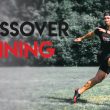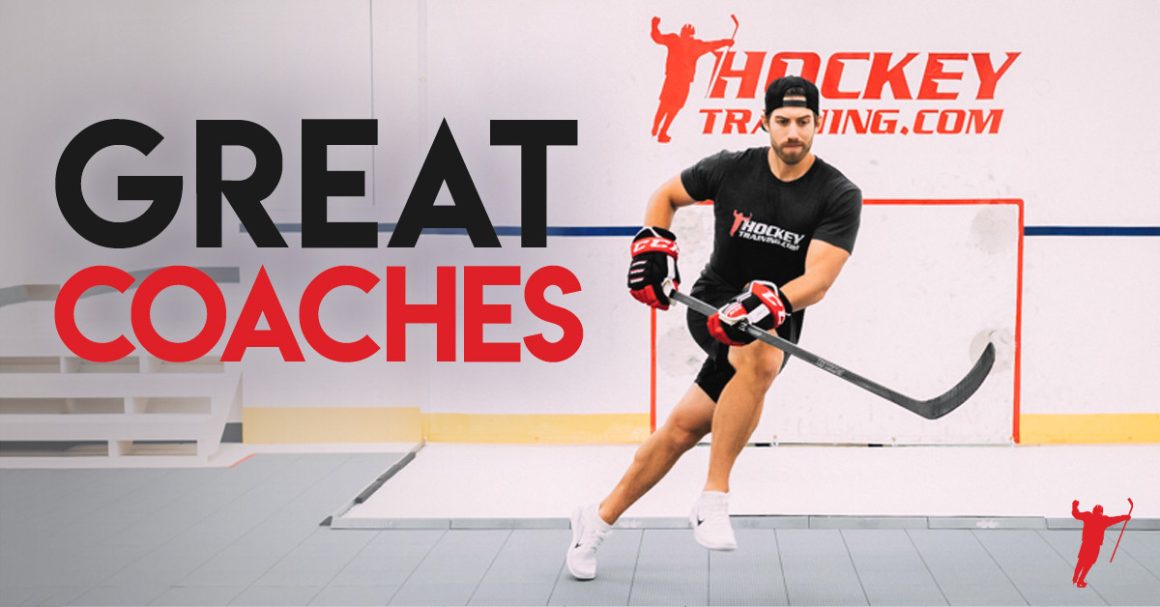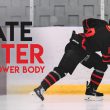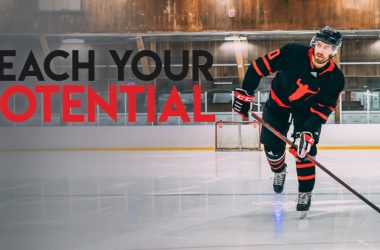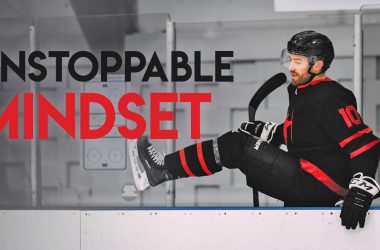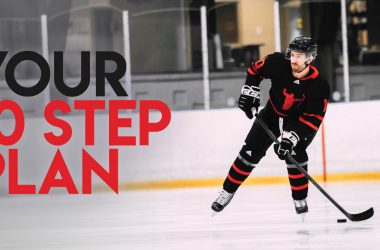There is no great hockey without great coaching.
You may think some of the characteristics I discuss in this article are obvious, as they would be expected to optimize any form of a professional working relationship.
However, there is a way in which coaching becomes greater than the sum of its parts. It’s only when you have all of these characteristics working together that you get a truly great coach.
My objective with this article is to bring to light the greatest coaching characteristics. A by-product of that will be laying out what a coaching relationship can and should look like for the best possible results.
Any great coaching relationship should begin with the key ingredient of any relationship: honesty. This honesty should be consistently positive. However, this does not mean creating false pretense for positive interactions; it means being adept at diplomacy in interpersonal skills and interaction.
Then there are other coaching characteristics that should be built upon this foundation of honesty:
- Positivity
- Trust
- Role modelling
- Focus
- Knowledge
- Assertion
These represent the key characteristics of an excellent hockey coach in any facet of hockey development, whether it be skills, strength, or psychologically rooted.
The hockey industry’s neglect of these characteristics is one of its most pronounced failures. I say this because if great coaching was the standard, we would never see silly marketing, dumb myths, or con artists selling toys disguised as performance tools.
If you want to be a great coach, walk with me for a moment, and let’s analyze the six characteristics that will separate you from the pack.
Positivity
Every hockey player coming into the coach/athlete relationship will have different skills, abilities, environments, stressors, and circumstances. One size will never fit all. The goal of the hockey coach from day one in the coaching process is to create momentum on behalf of the athlete moving forward.
The coach must create an environment of positive energy and be able to sustain positivity during what is always a non-linear progression process. There will be ups and downs for every athlete, and you must maintain that positive environment even while being able to course-correct mistakes or plateaus.
Truly effective coaching is all about being positive while still being able to correct mistakes, evaluate client weaknesses, and be critical when necessary. Being positive while doing these things can seem like a contradiction to some, but just the opposite is true: a positive environment is a necessity in order to do these “tough” coaching things effectively and meaningfully.
If the client is going to actually listen and accept feedback about weaknesses or accept critique, the client must know and feel that the overall energy is positive and to their benefit. So whether the coach’s feedback is critical or corrective, the hockey player always receives this information knowing the coach is on their side.
If, upon initial evaluation, the coach feels that authentic positivity cannot be established, it’s likely best for both the athlete and the coach to pass on the coaching process altogether.
There have been several times in my career when I felt it was best to not engage a new athlete beyond initial inquiry. This isn’t a bad thing for either party; it’s natural that people are not always going to be compatible with a specific coaching style.
We see this frequently in hockey where a player is just not a good fit with one coach, but when they move to another team they suddenly come into their own and perform better.
Optimal performance cannot be achieved or sustained if a positive working environment cannot be established.
Trust
The largest part that trust plays within a coaching relationship is accepting and acknowledging the non-linear aspects of results, progress, and real life.
Consistency may be more difficult for some hockey players than others, either logistically or because of the mental and emotional roadblocks they have built for themselves.
I have coached NHL players who travel for a living the majority of the year, and even when not in the in-season or with the team, they are typically traveling elsewhere for holiday breaks. Often they spend a day or two simply traveling from one destination to the next in airports and buses, potentially crossing several time zones on their way. Additionally, their access to equipment, food, and supplements may vary as well.
Combined with these logistical issues, people who have a great deal of responsibility can also be called on at a moment’s notice for an interview, guest appearance, charity event, or any number of different meetings they have organized for them.
In all cases, these things pull you further and further away from the personal and immediate goals you had for the day.
However, the athletes who “get it” are the ones who always make it work. They are as consistent as can be reasonably expected of them because they place a large emphasis of their energy on planning, preparing, and ensuring their needs get met first, before everyone else’s.
It’s not selfish to put yourself first—it’s only selfish when you expect others to put you first.
Those who are consistent are the ones who plan their daily success habits around everything else they have going on so they don’t needlessly regress. On the other hand, there are people who knowingly sabotage themselves, or are just unrealistic about the structure that’s required to reach big goals.
Oftentimes hockey players want to achieve personal goals only so long as these goals do not require a lifestyle change. This is immature thinking, and the results they receive will show them the reality behind what it takes to progress.
For both groups of hockey players, you need to trust that the process from start to finish is never a linear one. It’s never as simple as Point A to Point B.
Trust is a two-way street as well. The coach needs to be able to trust that a hockey player will communicate truthfully and honestly within the set-up of client feedback. A coach needs to trust that the hockey player will indeed apply the prescribed protocol.
A coach should not have to seek confirmation that the hockey player is implementing instruction to the best of their abilities. Coaching is not babysitting. I’ll do my job, but you need to do yours too.
Hockey players will vary in their ability to consistently follow instructions, and they will also vary in their motivation levels. Everyone is different, and that’s OK.
The trust, therefore, concerns the willingness of the hockey player to move forward with the coach and not bail on them at the first sign of non-linear progression. Performance, just like life, is non-linear; trusting each other and the process is how you both come out of this a better version of yourself.
Role Modelling
There are many characteristics that all truly great coaches have, and one of these traits is that the coach models the same actions that he or she would expect from their clients.
The “do as I say and not as I do” type of coaching will roadblock the trust a client has in their coach, even if it’s unconscious. But in the other context, when a client knows and feels that the coach is applying the same level of high-performance demands on themselves, it builds trust and motivation, even unconsciously. That client will be further driven because of the coach’s own personal drive.
A good coach should not just prescribe a training and nutrition regime for the client to follow, but actually be an illustration of how to be disciplined and responsible in terms of what they expect from themselves.
Oftentimes, the high-level clients are just as much in need of actions to model as they are the actual training and nutrition program. Where better to learn these actions and habits than your coach?
Walking the way you talk means bringing the qualities of character to the table that you expect out of your clients. Diet and training is not just in the physical world—it’s also mental and emotional.
If you’re a coach and you haven’t been where your client is, they know deep down you can’t truly relate to them. Studying and learning is not the same as knowing and doing.
In all reality, the greatest way to present your passion for your profession is to actually apply what you prescribe. When you walk the way you talk, you leave your clients wanting to emulate the same level of commitment and preparation. A coach should never underestimate how much louder their actions speak than their words.
Focus
Interactions with a hockey player must be focused and must be specific to that individual hockey player. No two athletes think exactly alike, and no two athletes will share the same life experiences, perspectives, and attitudes.
A great coach keeps his focus primarily on the athlete and their relationship and only secondarily on the prescribed protocol. This is especially true when problems arise or circumstances interfere with the client’s motivation to apply their protocol.
The coaching focus should always be about keeping advice specific and clear. The application of this advice needs to be unique to the athlete, keeping it manageable, measurable, and relevant to their lifestyle.
This doesn’t mean they are under constant assessment; rather, the focused coach gives the client something tangible that they themselves can evaluate and assess how well they manage and measure up to the advice given.
Focusing on what’s unique about the hockey player allows them to execute a system that they themselves can focus on and evaluate in the absence of the coach, creating habit change rather than just prescriptive change.
For example, I had a very high-level hockey player once in Junior A who had largely gotten there due to natural ability rather than hard work and consistency. From a nutritional and dryland training perspective, it was always one step forward and two steps back.
The excuses varied. Some were believable but most of them were just silly rationalizations. So, I gave him particular instructions that included day-to-day journaling of protocol and accountability to me for a six-week training phase.
This way, we had a mutual short-term emphasis with the daily journaling and a long-term measurable emphasis which was his six-week commitment. It was just enough emphasis to be management and non-triggering to his self-sabotaging mechanisms.
It had just enough unique focused support from me to engage him to operate at a higher performance standard, and the accountability was specific and focused to his exact trigger points for poor consistency.
Was it more work for me? Yep, but that’s OK, because that’s my job. It wasn’t that much extra, because his check-ins required very little feedback from me. The act of getting him to check in more often was more important than the content of the check-ins themselves.
He developed habit changes and rewired his brain to set higher expectations for himself and became a better hockey player for it.
Proper coaching focus simply means not expecting any more than a given client is capable of within their current lifestyle and unique challenges. For some elite hockey players, commitment to protocol and consistency is a given. For others, it’s their biggest issue.
Your ability to meet your athletes where they need to be met will define your level of specific focus as a coach.
Knowledge
A great coach will never be a great coach with people skills alone; they have to be extremely knowledgeable about all things hockey performance development.
I have dedicated my life to acquiring world-class expertise within the domain of hockey-specific speed, conditioning, agility, functional strength, nutritional support, and sports psychology.
Although a coach’s heart might be in the right place, I far too often see terrible training and nutrition plans being distributed to the team from someone who has very little, if any, formal education and practical experience in sports science.
To be blunt: there is a level of specificity involved in true coaching prowess. Seldom have any of these coaches spent time in any form of legitimate study to acquire the knowledge that would give them the right to say they are a real coach.
A great hockey trainer should have an excellent working knowledge of physical, nutritional, and psychological performance development. Not in a general sense, but in a hockey-specific sense. You would never see a basketball coach come over from the NBA and start coaching an NHL team. That seems ridiculous, right? Yet far too often, you see parents or local boot camp instructors begin writing and designing programs for hockey players.
This is why I created the world’s first Hockey Training Specialist course that gives you all the tools you would ever need to dial your knowledge up to a point where you can begin writing world-class hockey programs from scratch.
This course gives anybody who is motivated and committed to learn the opportunity to become a true specialist in this space and take all of the guesswork out of how they should be coaching a hockey player to reach their potential.
A great coach receives greater respect and loyalty when the athletes know and feel they are in good hands. Much more than you might think, the confidence an athlete has in their coach is directly proportional to their adherence to the protocol.
Additionally, nothing speaks louder than your ability to get results—and the results you produce in your hockey players ultimately comes down to your ability to periodize and design excellent programs.
Assertion
An effective coach must be assertive. This aspect of coaching is non-negotiable.
The problem here is a misinterpretation of what this term actually means and implies as a coaching characteristic. False confidence is not assertiveness. Being a jerk is not assertive. And true assertiveness is a strength that should not be confused with aggressiveness (which is actually a weakness).
A coach is a leader, and leaders must lead.
To do so with anything short of an assertive attitude is to lose the position as a perceived strong and capable leader. Being assertive is about maintaining a strong presence without demanding it.
In other words, a great coach will be the boss without needing to be bossy. Done well, assertive leadership will garner loyalty and respect from your hockey players. This assertiveness must be sincere, and not some kind of roleplay.
Assertiveness comes from confidence, and confidence is built through domain knowledge. Your athletes will feel both radiating from you, and this will strengthen your bond at an unconscious level, leading to better results for everyone involved.
The Complete Hockey Coaching Solution
The above article gives you just the tip of the iceberg in terms of what it takes to be an excellent coach, but unless that is paired with world-class hockey program design skills, you will not reach your or your hockey athlete’s true potential.
If you want the complete blueprint on how to master the science of hockey training and combine it with the art of coaching to turn your passion for hockey into a massively successful career, then the Hockey Training Specialist course is precisely what you need.
This is the ONLY hockey-specific certification course in the world. This means that by the time you complete it, you’ll likely be the first and only coach in your area with this credential on your resume. This will draw the hockey parents and serious athletes to you like a magnet.
You will become such a popular hockey coach in your area that you can create your own schedule and never again be thrown into the 12–16 hour work shifts that so many trainers are accustomed to.
On top of that, your athletes will receive life-changing transformations on the ice, and through word of mouth, hockey parents will know to contact you to get the best results.
Become a Certified Hockey Training Specialist and guarantee your success today.
Final Thoughts
Go through the above coaching characteristics and make note of which ones you possess, and which ones could be strengthened.
Where are your strengths and weaknesses here? What can you work on right now?
The sooner you perform this honest self-evaluation, the sooner you can get to work on becoming a more complete coach.


